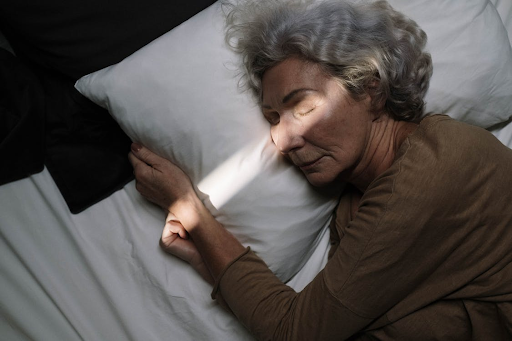Sleep is one of the essential things a body must have. When one sleeps, the body supports healthy brain function and maintains optimal physical health. So, when a senior is sleep deprived, it causes adverse effects on their mood and health.
Like all adults, the elderly require 7 to 9 hours of sleep. However, the elderly tend to sleep earlier and wake up earlier than they did before old age – it’s one of the changes that come with age.
When you add the consequences of sleep deprivation to seniors’ many health conditions, sleep is essential for older adults. In this article, we talk about sleep deprivation and how it affects the elderly. Do you want to improve your sleep health? Then, continue reading to get informed.
What Is Sleep Deprivation?
Sleep deprivation is just like its term: it’s a state in which a person is deprived of sleep. It can happen due to numerous factors, e.g., stress, medical conditions, sleeping habits, etc. As you know, the elderly have numerous health concerns that they have to consider, and when you add sleep deprivation and its effects on the body, it can be extremely unhealthy and detrimental to one’s health.
Don’t mistake sleep deprivation for sleep deficiency because sleep deprivation is as simple as not getting enough sleep. On the other hand, sleep deficiency is a much broader concept, and it occurs when you have one (or more) of the following:
- Sleep deprivation (You don’t get to sleep enough.)
- You don’t sleep at the correct hours of the day.
- You have a sleep disorder condition that prevents you from sleeping enough, or you get poor-quality sleep.
- You have different types of sleep (depending on your body’s needs) because you don’t sleep well.
If you’ve determined that you’re sleep deprived and not sleep deficient, then you may experience the following common symptoms in adults:
- Constant yawning
- Poor concentration skills
- Constant mood changes
- Highly irritable
- Tends to doze off when not active for a while, e.g., sleeping when watching the television
- Grogginess as soon as you wake up in the morning
- You experience sleep grogginess throughout the day (sleep inertia)
If you’re a senior citizen having trouble sleeping or if you’re diagnosed with insomnia, you may want to consult your healthcare provider and get solutions to your problem. They may prescribe Ambien (zolpidem tartrate) to treat your insomnia, depending on what other medications, herbal products, and supplements you take to avoid dangerous drug interactions.
The medication is expected to respond to your insomnia for 7 to 10 days. You may want to get a discount on your purchase since it isn’t easy being a retired senior who must pay for different sets of medications. You can use a free Ambien Coupon from BuzzRx, and use it at any local pharmacy near you.
How Does Sleep Deprivation Affect Seniors?
Sleep deprivation can lead to numerous health problems, such as irritability, mood swings, difficulty concentrating, and fatigue, and in many severe cases, it can lead to delusions and hallucinations. Seniors should be wary of sleep deprivation because, as you know, their bodies become less efficient at producing the necessary hormones for regular sleep.
Due to the changes that come with age, seniors have trouble staying asleep for extended periods. It’s why you can observe that the elderly would wake up at the crack of dawn to do chores since they have difficulty staying and going back to sleep. As a result, they would feel tired and sleepy throughout the day and have difficulty getting a good night’s sleep.
Furthermore, a lack of sleep also affects one’s decision-making skills and long-term memory. As you know, seniors already have trouble with their memory, so getting little sleep doesn’t help with this. If a senior continues and doesn’t deal with their sleep deprivation, over time, the condition may contribute to cognitive decline and the risk of developing dementia.
Did you know that one of the leading causes of accidents among older adults is drowsy driving? It’s even considered just as dangerous as drunk driving. According to the National Sleep Foundation, drunk and drowsy driving have similar bodily effects.
Impaired reaction time, motor skills, and decision-making skills can increase the likelihood of accidents. It’s perilous since seniors are already susceptible to falls and trips.
Remember to take your prescribed medications since sleep deprivation can also worsen chronic health problems like diabetes, stroke, and heart disease. Sleep deprivation can also compromise seniors’ immune systems since sleep is essential for maintaining a strong immune system.
Final Thoughts
Sleep deprivation can affect a senior’s physical and mental health. It’s a serious issue among the elderly, and with the decline in health, you, as the person reading this article, should advocate for a healthy sleeping pattern. Urge them to sleep better and longer by: following a regular sleep schedule, practicing relaxation techniques, and creating a quiet and comfortable bedroom.
If you’re a senior with sleep problems or know someone who suffers from sleep deprivation, help them (or yourself) sleep better with this article. They must be aware of the dangers of sleep deprivation for their health.























